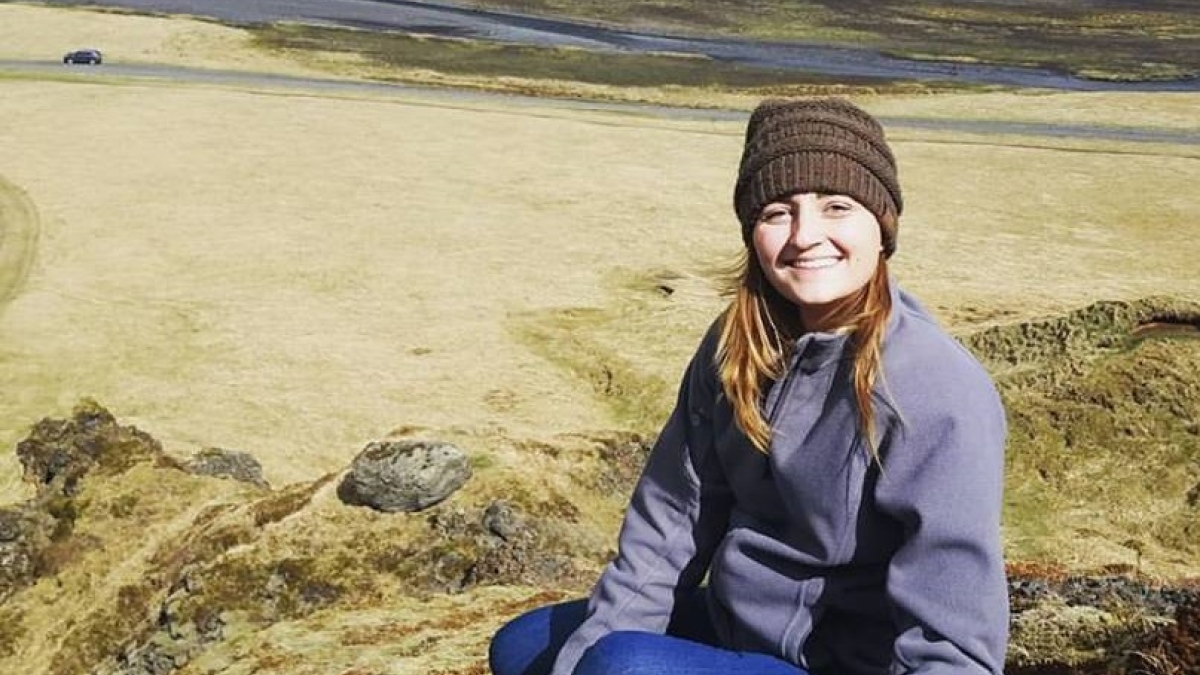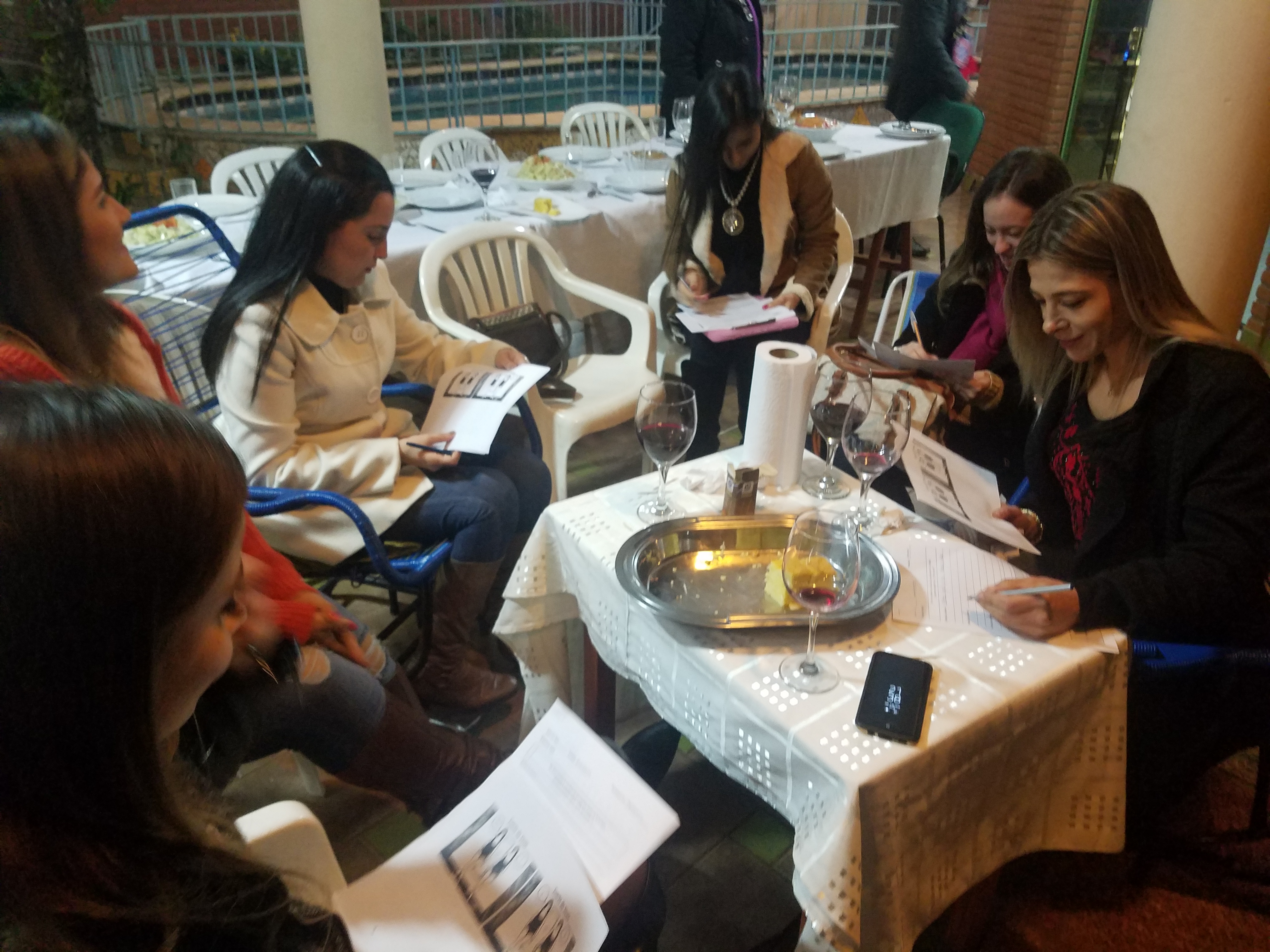ASU senior Monet Niesluchowski gave Phileas Fogg, the protagonist of Jules Verne’s classic adventure novel “Around the World in Eighty Days,” a run for his money this summer when she traveled to Iceland, Guatemala, Cambodia, Tajikistan, New Zealand, Paraguay and the United Kingdom in just under four months.
But unlike Fogg, the purpose of her grand tour wasn’t to settle a bet. It was to collect data for a pair of research projects — one about global perceptions of fat stigma and the other about water security. They might seem like disparate topics, but for the anthropology-political science double major, they both stand to reveal fascinating sociocultural insights.
Niesluchowski (pronounced kind of like Mike Wazowski from “Monsters, Inc.,” she said) — a student in Barrett, the Honors College, and the School of Human Evolution and Social Change — grew up in Arizona but developed an interest in faraway places and peoples at a young age.
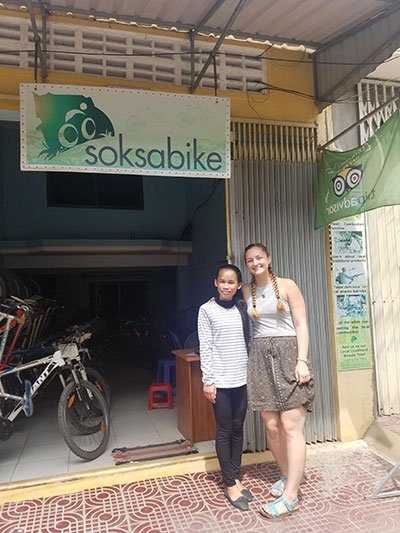
Monet Niesluchowski with a local girl in Battambang, Cambodia.
“My mom is Iranian, but she left Iran right around the time of the revolution in 1979,” Niesluchowski said. “So I’ve always found her stories really interesting, and I’ve always been really interested in different languages, cultural traditions and governmental systems.”
Niesluchowski had some experience living abroad from when she received the Boren Fellowship to study Farsi and Tajiki in Tajikistan from August 2015 to July 2016. The knowledge she gained then came in handy when she returned to the country this summer.
The work she did related to water security involved managing the data collection of 225 household surveys in Tajikistan in the hopes of developing a scale that can be used to measure water insecurity at several sites throughout the world.
“There’s pretty well-established food-security scales … but there isn’t a well-developed water-security scale just yet,” Niesluchowski said. She plans to use some of the data collected over the summer to develop her senior-year thesis.
The work she did related to fat stigma is part of a series of projects led by linguistic anthropologist and School of Human Evolution and Social Change Associate Professor Cindi SturtzSreetharan that consider the forms and functions of language concerning fat stigma in different cultures (for this, Niesluchowski collected data from Tajikistan, as well as the other six countries she visited over the summer).
Niesluchowski was awarded the Barrett Honors Intercontinental Travel Award to participate in the fat-stigma research but had previously worked on similar projects with Obesity Solutions, an ASU-Mayo partnership geared toward studying and finding solutions for the disease. One study she contributed to, titled “The Fat Self in Virtual Communities,” was published in the academic journal Current Anthropology in 2016.
A group of women in Encarnacion, Paraguay, respond to the fat-stigma survey.
Being able to participate in meaningful research as an undergraduate has been invaluable for Niesluchowski.
"Getting involved in research as an undergraduate may be the single most important thing a student can do," she said. "Regardless of the field, learning research methods teaches students how to think critically and process complex theories and complex amounts of information.
"Moreover, understanding research methods makes undergraduates more rounded individuals because often science is talked about in the media and is used as a basis for making policy changes. Understanding research and research methods gives individuals a more critical understanding of the world around them."
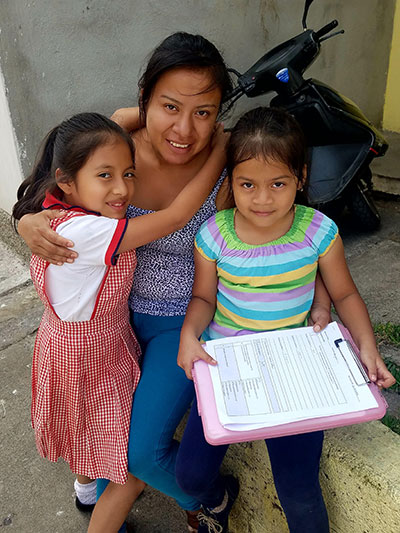
A survey respondent and her two daughters in Guatemala.
One of the lessons she learned firsthand was what kind of challenges to expect in the field, and how to overcome them.
In Iceland, Niesluchowski had trouble finding natives to take her survey. She came up with the idea to recruit participants at bus stops, where she was more likely to find locals. And in Cambodia, when the language barrier posed a problem, she found success by putting the survey online.
There were other encouraging moments: Partway through her trip, Niesluchowski got word that she had to fly back to the U.S. for a quick trip to Washington, D.C. — to accept the Pickering Fellowship, a prestigious award from the U.S. Department of State that provides funding for graduate studies and the offer of a position as a foreign service officer upon graduation.
Niesluchowski said she may defer the fellowship but only long enough to pursue a Fulbright English Teaching Assistant Fellowship in Mongolia. She hopes to one day work in public diplomacy as a foreign service officer.
For now, Niesluchowski has her work cut out for her sorting and analyzing all the data she collected, which she’ll be doing over the next two semesters. She's excited to see what the data reveals but cautious about jumping to conclusions.
"Right now, we're just kind of getting into it, so it's hard to say what concrete findings we'll have until we do more in-depth analyses," she said. "As a social-science researcher I have to be careful about keeping things very unbiased. So we’ll see."
Top photo: ASU anthropology-political science double major Monet Niesluchowski poses for a photo in Iceland, where she conducted research over the summer of 2017. All photos courtesy Monet Niesluchowski
More Arts, humanities and education

A humanities link from Harvard to ASU
Jeffrey Wilson didn’t specifically seek out Arizona State University professors when it came to filling out the advisory board for his new journal Public Humanities.“It just turns out that the type…

ASU professor’s award-winning book allows her to launch scholarship for children of female shrimp traders in Mexico
When Arizona State University Associate Professor Maria Cruz-Torres set out to conduct the fieldwork for her third book, "Pink Gold," more than 16 years ago, she didn’t count on having major surgery…
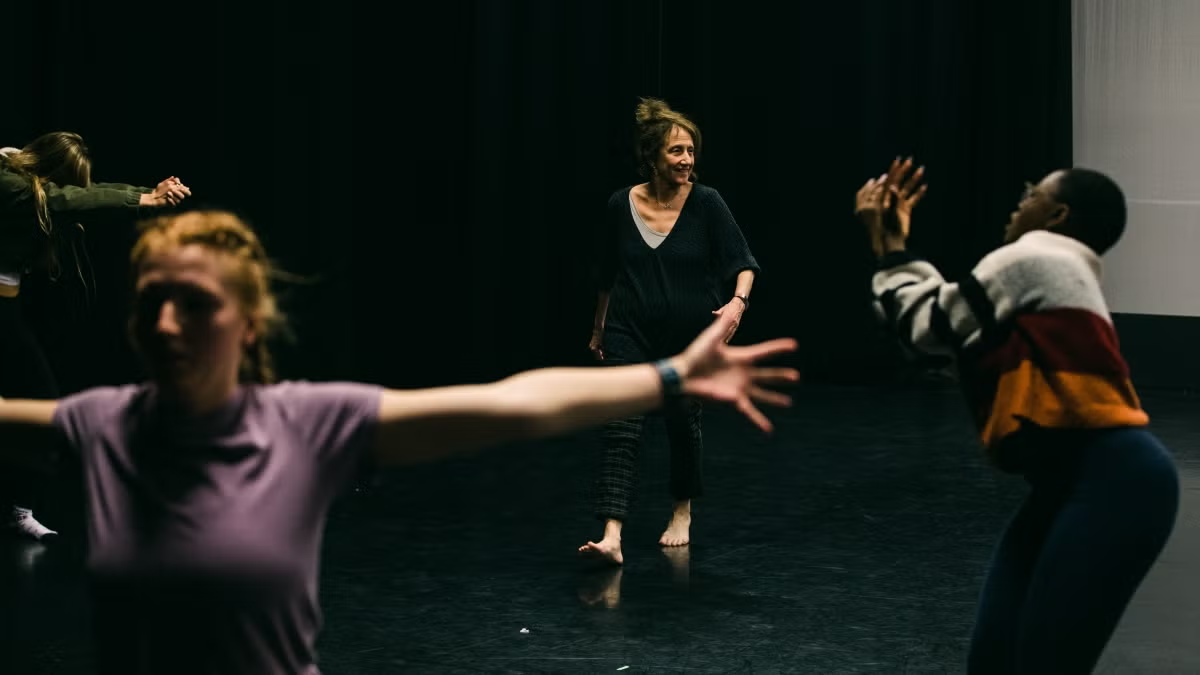
Herberger Institute Professor Liz Lerman to be honored as Dance Magazine Award winner
Dance Magazine has announced that Arizona State University Herberger Institute Professor Liz Lerman will be honored as a Dance Magazine Award winner at a ceremony Dec. 2 in New York City.“I…
